नगरीय कार्य
वनक्षेत्र में आज शिक्षा, चिकित्सा सुविधा, आर्थिक विकास की दिशा में हमें कमियाँ दिखाई पड़ रही है। अगर नगरों में रहनेवाला समाज 100 वर्ष पूर्व ही जागृत एवं सचेत होकर अपने वनवासी बन्धुओं के बारे में सक्रीय हुआ होता तो आज चित्र कुछ और होता। नगरीय समाज की उदासीनता, उपेक्षा एवं वनक्षेत्र तथा जनजाति समाज के बारे में अज्ञानता के कारण आज अराष्ट्रीय, असामाजिक एवं विघटनकारी शक्तियाँ वनक्षेत्र में अपनी जडे़ जमायें हुए है। भोला-भाला वनवासी समाज उनकी शिकार बन गया है। सामान्य रूप से एसी धारणा है कि नगरवासियों से वनवासी क्षेत्र के सेवाकार्य के लिये धन तथा संसाधन की पूर्तता यही नगरीय कार्य है। यद्यपि ‘नगरीय कार्य’ का यह कार्य अवश्य है, परन्तु इससे भी अधिक महत्वपूर्ण है नगरवासियों के ध्यान में यह लाना की वनवासी समाज इस राष्ट्रपुरूष का एक अंग है। वनवासी बन्धुओं ने आज भी अपनी संस्कृति का, अपने जीवनमूल्यों को सम्भाल के रखा है। वनवासी आर्थिक रूप में अभावग्रस्त हो सकता है, किन्तु सांस्कृतिक जीवनमूल्यों की दृष्टी से सम्पन्न है। अतः नगरीय एवं वनवासी समाज के बीच आत्मीय सम्पर्क, सम्बन्ध स्थापित होने से जहाँ एक ओर अपने वनवासी बन्धुओं की भौतिक उन्नति का मार्ग प्रशस्त होगा वहीं दूसरी ओर नगरीय परिवारों में सांस्कृतिक जीवनमूल्यों की सम्भावनाएँ बढ़ सकती है। अतः वह आत्मीय सम्बन्ध स्थापित करने में कल्याण आश्रम सेतु का कार्य कर रहा है।
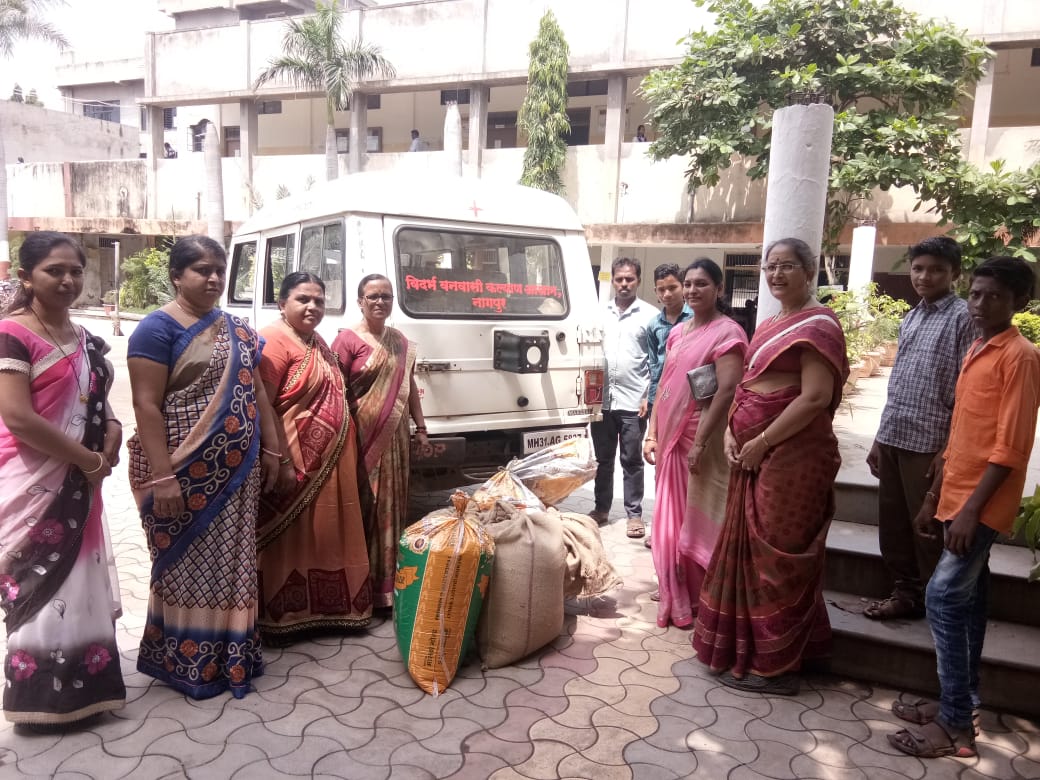
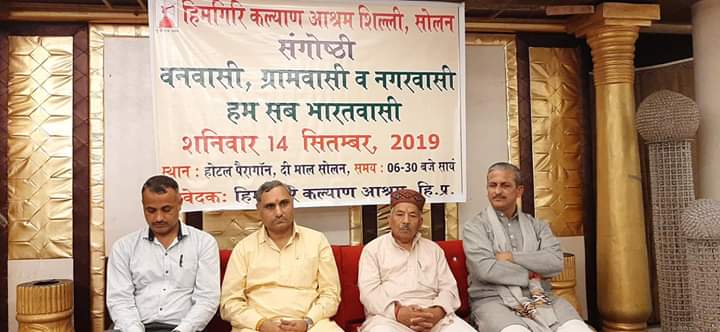

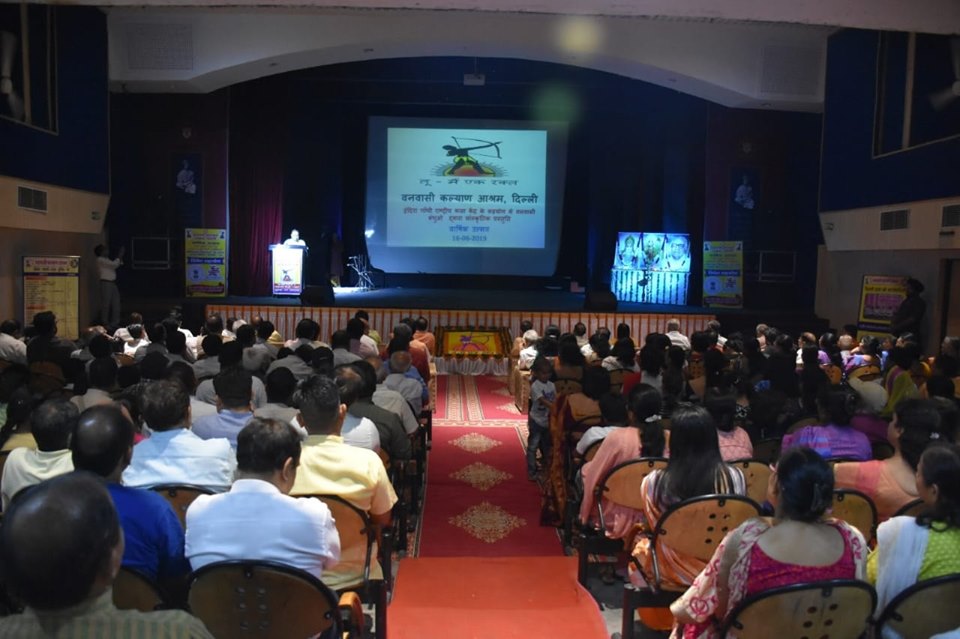
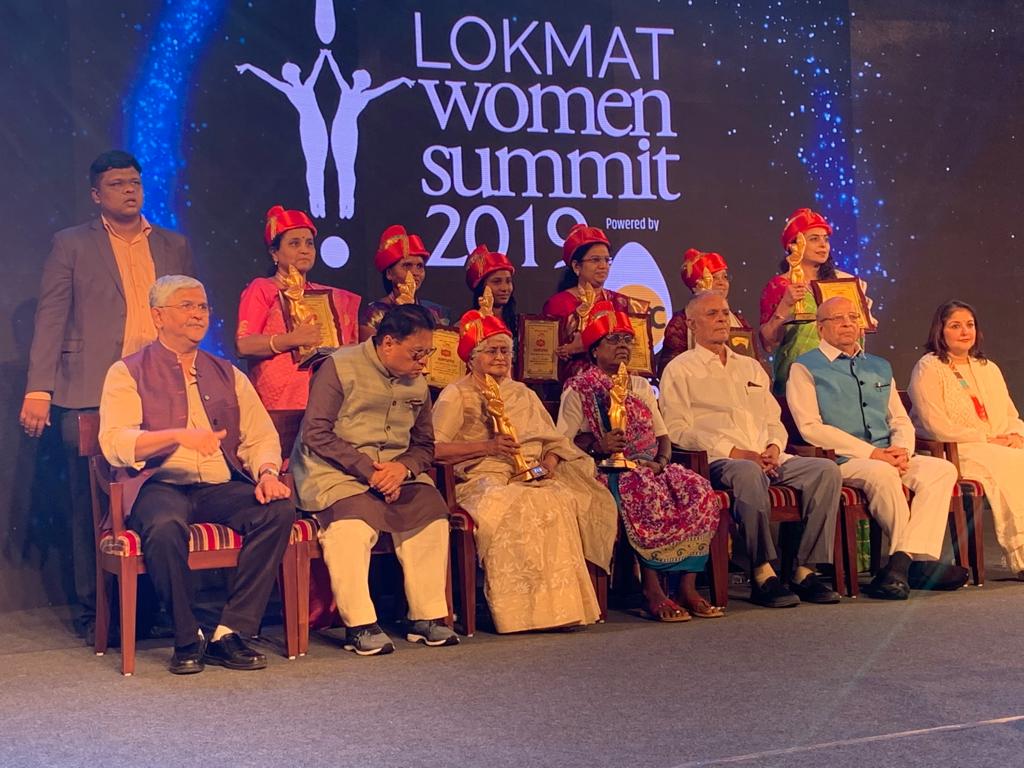
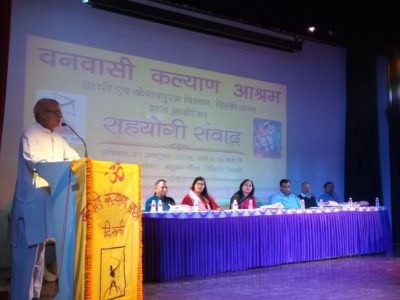
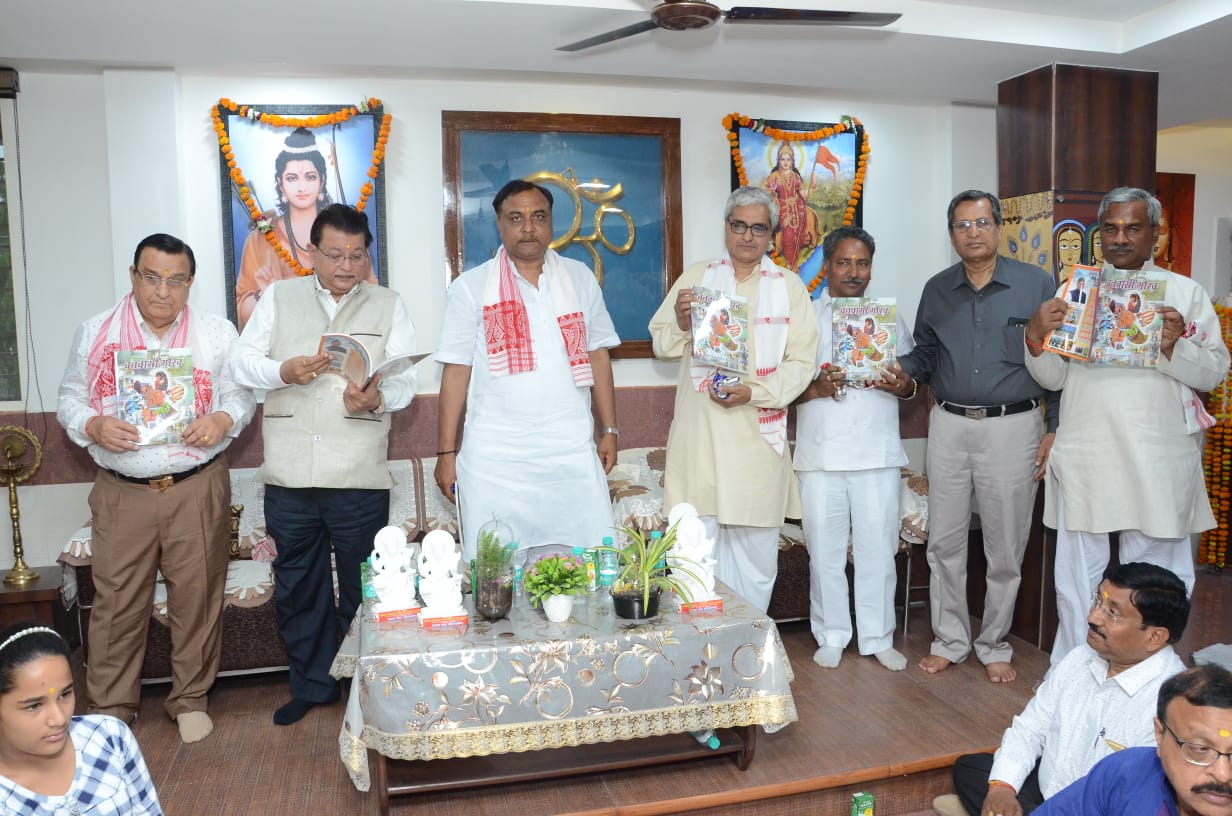

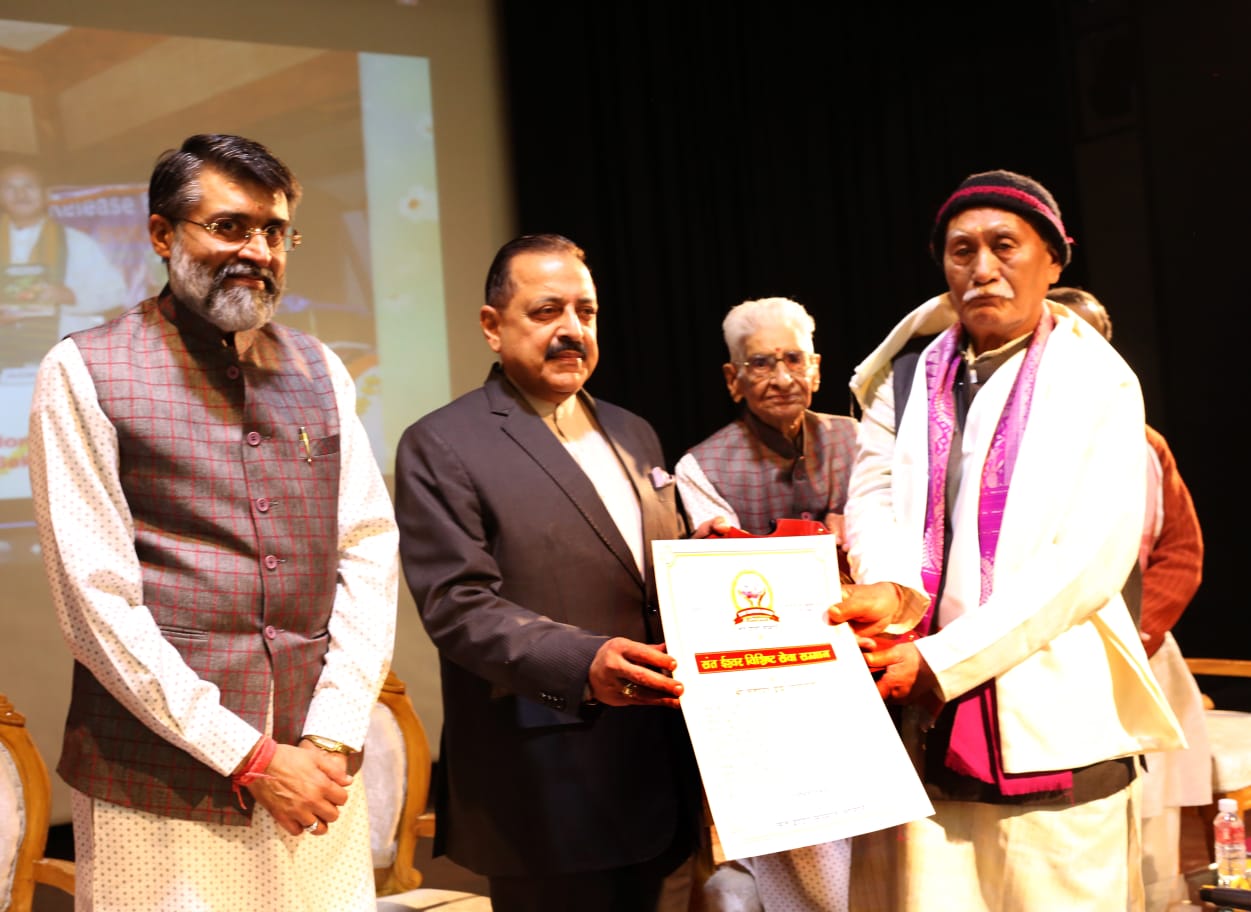
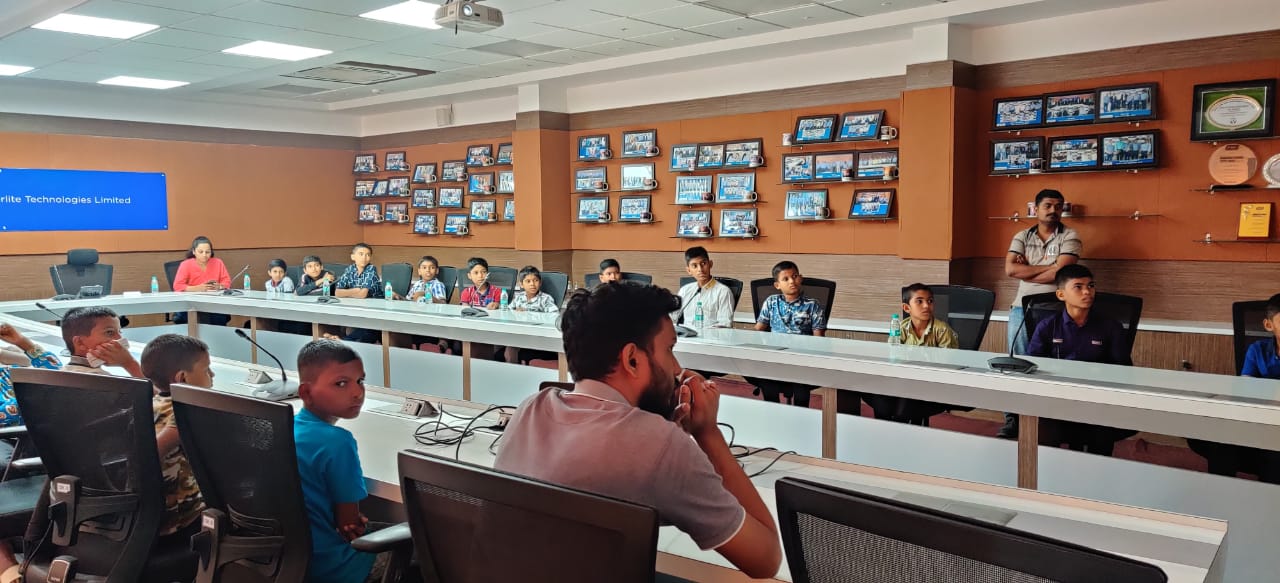
डिमापुर के सिंगल अंगामी में बस्ती में रानी गाईदिन्ल्यु बालक छात्रावास के नवीन भवन का लोकार्पण 2 फरवरी...
महाराष्ट्र के विभिन्न महाविद्यालय के विद्यार्थी आरोग्य सेवा देने हेतु देश के जनजाति गाँवों में प्रतिवर्ष...
वनवासी कल्याण आश्रम पूरे देश के 11 करोड़ जनजाति समाज के लोगों के बीच में कार्य करने वाली विश्व की सबसे...
‘वनवासी शहरवासी हम सब भारतवासी’ इस उक्ति अनुसार कल्याण आश्रम विविध प्रकार के प्रयत्नों से वनवासी समाज...
पंजाब प्रान्त से प्रान्त नगरीय कार्य सरंक्षक पी.एन.गर्ग व प्रांत नगरीय कार्य प्रमुख कैलाश चंद्र गर्ग...
नागपूर में वनवासी कल्याण आश्रम द्वारा रामदास पेठ में एक छात्रावास का संचालन हो रहा है। यहाँ जनजाति छात्र...
हिमाचल प्रदेश के सोलन में विचार गोष्ठी
हिमाचल प्रदेश के सोलन में हिमगिरी कल्याण आश्रम द्वारा एक विचार...
वनवासी कल्याण आश्रम के अखिल भारतीय मार्गदर्शक सौमेया जुलू, क्षेत्रीय संगठन मंत्री भगवान सहाय,व पंजाब...
नागालैण्ड के राज्यपाल आचार्य पद्मनाभन जी की बिदाई निमित्त गुवाहाटी में 16 जून 2019 को एक सम्मान कार्यक्रम...
30 जून 2019 को रूद्रपुर में सेवा प्रकल्प संस्थान की साधारण सभा सम्पन्न हुई। प्रांत अध्यक्ष सुरेश पाण्डे...
कल्याण आश्रम-असम द्वारा गुवाहाटी में एक अनोखे कार्यक्रम का आयोजन हुआ। नागालैण्ड के टेनींग में जनजाति...
वनवासी कल्याण आश्रम महाराष्ट्र की वरिष्ठ कार्याकर्ता ठमाताई पवार को पुना के ज्योत्स्ना देवी दर्डा कार्य...
वनवासी विकास परिषद उमरिया के तत्वावधान में वन चेतना काव्य गोष्ठी का आयोजन हुआ। मुक्तक के काव्य रचना कार...
अखिल भारतीय सह व्यवस्था प्रमुख माननीय प्रकाश काले जी का पंजाब प्रवास के दोरान मोरिंडा स्थित स्वामी विवेकानंद...
वनवासी विकास समिति-झारखण्ड के कार्यकर्ताओं ने रांची में वर्तमान में निर्वाचित जनजाति सांसदों के सम्मान...
हमें वनवासियों को दया भाव से नहीं समरसता के भाव से देखना चाहिए,जैसा भगवान राम ने अपने वनवास के दौरान...
विदर्भ में मेलघाट है एक जनजाति क्षेत्र है। यहाँ के गाँव आज भी मूलभूत सुविधाओं से कोसो दूर है। ऐसे में...
दिल्ली वनवासी कल्याण आश्रम की सर्वसाधारण सभा 7 अप्रेल 2019 को संपन्न हुई। बैठक में 55 कार्यकर्ता उपस्थिति...
पंजाब के फिरोजपुर विभाग के नगरीय कार्य प्रमुख गौरव सोनी अपने परिवार के साथ हिमाचल प्रदेश के सोलन छात्रावास...
महाराष्ट्र के कराड नगर में 3 फरवरी 2019 को नगरजनों ने वार्षिक उत्सव सम्पन्न किया। पश्चिम क्षेत्र सम्पर्क...
हम सब दिल्लीवासियों के लिये विशेष दिन रहा। यहाँ संत ईश्वर फाउण्डेशन द्वारा कुछ महानुभावों को सम्मानित...
चंडीगढ़ कार्येक्रम में क्षेत्रीय संगठन मंत्री श्री भगवान सहाय जी, संघ के वरिष्ट प्रचारक श्री प्रेम जी...
जनजाति कल्याण आश्रम द्वारा पोशीना (गुजरात) के कार्यकर्ताओं की कर्णावती (अहमदाबाद) में 4,5 अगस्त 2018...
हमारी समर्पण वृत्ती एक सैनिक जैसी है – भगवान सहाय
भाग्यनगर में सम्पन्न हुआ नगरीय कार्य आयाम का अखिल...
Our Dedication is like a Soldier: Bhagwan Sahay
Vanvasi Kalyan Ashram National Level Workshop on Urban...
पुरुषोत्तम मास में जनजातीय दांम्पत्यों को उपहारों देकर किया सन्मानीत
पुरुषोत्तम मास के अवसर पर नासिक...
दूर दूर गांवो में जाए… वन बंधु को मिलने….
महाराष्ट्र में वनयात्रा का आयोजन
चाणक्य मंडल परिवार यह अत्यंत...
No posts found
